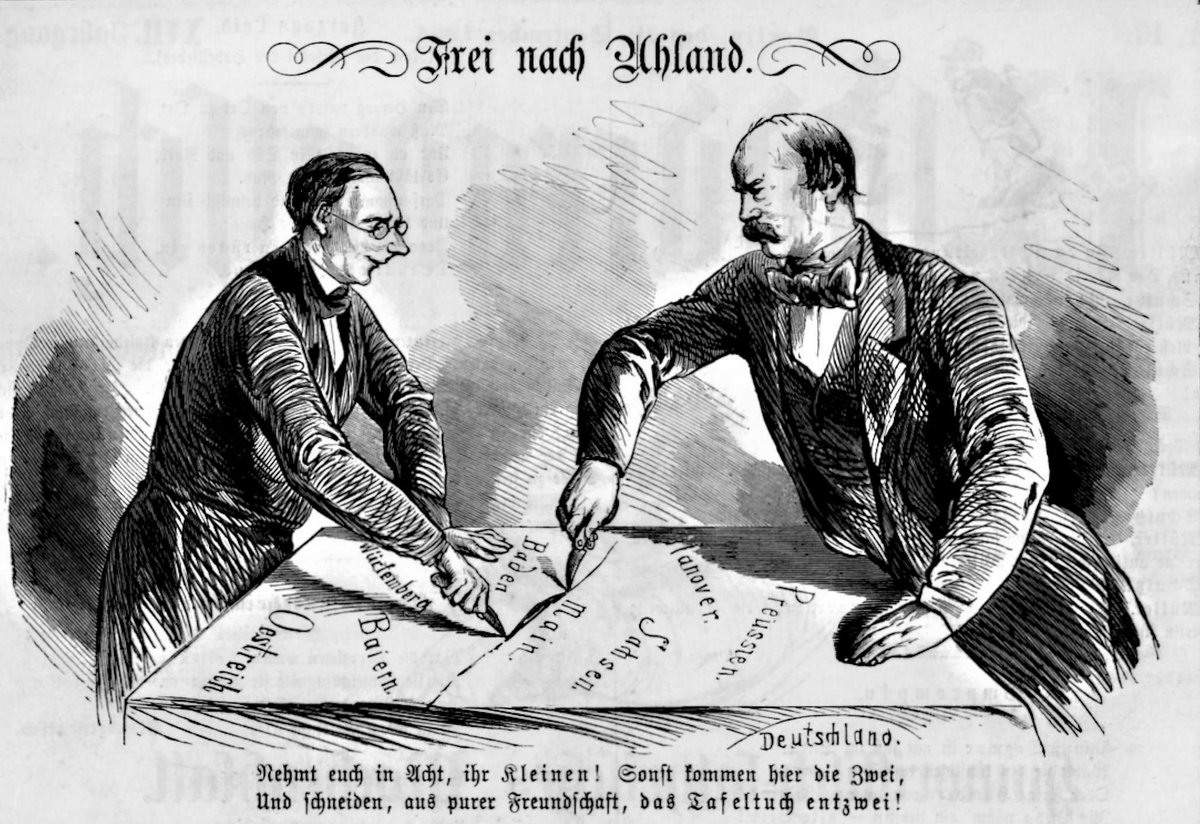
On 10th June 1866, Bismarck submitted to all German states the Prussian Federal Reform Plan of 1866. The proposed constitution outlined a German federal state without Austria with a national parliament directly elected through universal male suffrage. 

The plan had originally been presented to the Bundestag on April 9, 1866 where many princes reacted with horror as they saw their sovereignty diminished, and asked Bismarck to work out his reform plans further. 

Prussia tried to win Bavaria's support for federal reform but the latter's insistence in consulting Austria ended the process. A Munich caricature from April 1866 called Bismarck the “insolent head waiter” who proposes a parliament that will stain the German princes as a sauce. 

On June 16, 1866, after the fighting began, Prussia offered 19 northern German states an alliance based on the reform plan and promised them autonomy and territorial integrity. In return, they would have to subordinate their armies to Prussia. Seventeen accepted the offer. 

A parallel discussion between Bismarck and Napoleon III set the ground for a new federal state north of the Main. This was along the lines of the 1864 discussions between Bismarck and the Austrian Minister Graf von Rechberg. 

• • •
Missing some Tweet in this thread? You can try to
force a refresh









